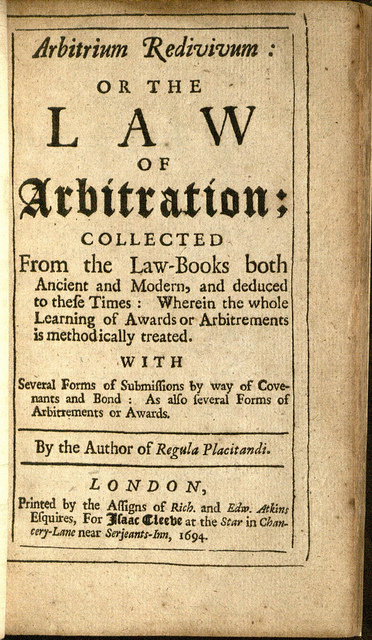
Fresh on the heels of signs during the Iskanian oral argument that the California Supreme Court might at least partially fall in line behind the rule of Concepcion (subscr. req.), we received a reminder that arbitration clauses continue to receive an uncertain reception in the Courts of Appeal. In Imburgia v. DirecTV, Inc., Division One of the Second Appellate District affirmed a trial court decision invalidating a consumer arbitration clause in its entirety. (See here for a quick sketch of the background law at the federal and California state level.)
The plaintiff in Imburgia filed a putative class action complaint alleging a laundry list of consumer claims: unjust enrichment, declaratory relief, false advertising, and violation of the Consumer Legal Remedies Act, the unfair competition law and Civil Code Section 1671(d). Plaintiff’s theory was that the defendant improperly charged early termination fees to its customers.
The parties litigated for two and a half years, but less than a month after Concepcion was handed down in 2011, the defendant petitioned to compel arbitration. The trial court denied the motion.
Two provisions of the defendant’s then-standard customer agreement were at issue. Section 9 provided that “any legal or equitable claim” relating to the Agreement or service would first be addressed informally, and then through “binding arbitration” under JAMS rules. The clause barred all class claims, both in litigation and arbitration:
Neither you nor we shall be entitled to join or consolidate claims in arbitration by or against other individuals or entities, or arbitrate any claim as a representative member of a class or in a private attorney general capacity . . . If, however, the law of your state would find this agreement to dispense with class arbitration procedures unenforceable, then this entire Section 9 is unenforceable.
Section 10 was called “Applicable Law”:
The interpretation and enforcement of this Agreement shall be governed by the rules and regulations of the Federal Communications Commission, other applicable federal laws, and the laws of the state and local area where Service is provided to you . . . Notwithstanding the foregoing, Section 9 shall be governed by the Federal Arbitration Act.
The plaintiffs’ argument on appeal went like this. Class action waivers are unenforceable under the Consumer Legal Remedies Act. The final sentence of Section 9 referring to “the law of your state” means “the law of your state disregarding any impact of the FAA.” Since California law bars class waivers in CLRA cases, “this agreement to dispense with class arbitration procedures [is] unenforceable,” and the entire arbitration clause falls.
The Court of Appeal agreed. The court based this conclusion on two general principles. First, the final sentence of Section 9 is a specific exception to the general invocation of the FAA in Section 10, and a specific contract clause always governs a more general one. Second, the clause was ambiguous as written, and ambiguities must be resolved against the drafter – here, the defendant. In so holding, the Court of Appeal declined to follow directly contrary decisions from the federal district court hearing the parallel MDL action and the Ninth Circuit.
The California Supreme Court should grant review in Imburgia and reverse. Defendants made two arguments before the Court of Appeal which seem to me to dispose of the plaintiff’s “imagine there’s no FAA” argument.
First, the plaintiffs’ arguments, adopted by the Court of Appeal, depend on the proposition that the last sentence of Section 9 and Section 10 conflict. But they don’t. The plaintiff argues that the CLRA bars class waivers. But that tells us nothing. Section 9 does not invoke California law in a vacuum. The clause asks whether “the law of your state would find this agreement . . . unenforceable.” Well, California law couldn’t find the defendant’s subscriber agreement unenforceable. The agreement deals with interstate commerce and is therefore subject to the FAA. If the Supremacy Clause means anything, it’s that Concepcion is the law of every jurisdiction, including California. The class waiver is perfectly valid under Concepcion and Concepcion preempts the CLRA.
Second, Section 10 provides that “Section 9 shall be governed by the Federal Arbitration Act.” As the federal MDL court held, the plaintiffs’ interpretation of Section 9 renders that clause completely meaningless, in violation of the most fundamental principles of contract construction. The Court of Appeal disagreed, describing Section 9 as a “narrow and specific exception to the general provision” of Section 10, which “[i]t does not render . . . meaningless,” but this seems conclusory. Before the Supreme Court, the plaintiffs are likely to have considerable difficulty explaining what practical impact the FAA clause of Section 10 can ever have if their construction of the contract is correct.
The likely petition for review in Imburgia adds another element of uncertainty to the Court’s deliberations over what to do about Iskanian. The Appellate Strategist will be following both cases closely.
Image courtesy of Flickr by Yale Law Library (no changes).
